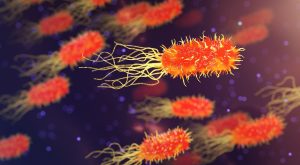 Asthma is caused by your airways being more sensitive to irritants and becoming inflamed, making it difficult to breathe. Cases are on the increase and one in every 11 children in the UK are now diagnosed with Asthma. One explanation for the rise in Asthma is the ‘Hygiene Hypothesis’, which has been discussed for many years. This suggests that children are no longer exposed to enough bacteria at an early age, which normally would help to build the immune system to be able to tell the difference between friend and foe bacteria. This results in the immune system believing that pollen and other triggers are harmful resulting in the airways becoming inflamed as the immune system attacks.
Asthma is caused by your airways being more sensitive to irritants and becoming inflamed, making it difficult to breathe. Cases are on the increase and one in every 11 children in the UK are now diagnosed with Asthma. One explanation for the rise in Asthma is the ‘Hygiene Hypothesis’, which has been discussed for many years. This suggests that children are no longer exposed to enough bacteria at an early age, which normally would help to build the immune system to be able to tell the difference between friend and foe bacteria. This results in the immune system believing that pollen and other triggers are harmful resulting in the airways becoming inflamed as the immune system attacks.
On the back of these discussions a team analysed the billions of bugs that naturally occur within the human body. Microbes, bacteria and fungi outnumber human cells 10 to one and this ‘microbiome’ is thought to be key to our health. They found that if there were four main groups of bugs missing then the risk of developing asthma was very high. The types of bacteria are faecalibacterium, Lachnospira, Veillonella and Rothia. The team looked for the presence of these bacteria in children aged 3 months and one year and then looked to see if they developed asthma by the age of 3. The lack of these bacteria in both age groups resulted in a high risk of developing asthma by the age of 3.
It appears that the first year of life is crucial and that the ‘right bugs at the right time‘ could be the best way of preventing asthma and other allergies. Exposing children in the first year of life to a wide variety of bacteria could help to ensure that their immune system is calibrated correctly and prevent later development of asthma.
Further experiments, which looked into the ‘passing down of immunity’ from mother to child involved giving a bacterial cocktail to mice who then had offspring with reduced inflammation in their lungs. Other suggestions involve the fact that giving birth by Caesarean section and not breast feeding may both limit the bacteria from being passed from mother to child and hinder immune system development.
Dr Marsland from Switzerland has been researching this area for a number of years and believes that diet, microbes and the first year of life are key in preventing or easing Asthma symptoms. He believes that a high fibre diet is important for keeping the gut healthy, as it is the delicate balance of gut bacteria in our bodies that affects our immune system and may play a role in asthma development.
However this is just a step in the right direction, more research needs to be carried out into these four types of bacteria, their role within the body and their relationship with the immune system and conditions like allergies and Asthma. If there is a direct link then new information could be given to new parents about exposing children to bacteria, a bacteria cocktail could potentially be created to be given to pregnant women or young children, there may also be a way of training the immune system at a later stage of development by introducing these bacteria to patients to try and cure or lessen their Asthma.
Scientists urge people not to run out and buy lots of friendly bacteria yogurt drinks and pro-biotic yogurts, as much more research is needed to ascertain the facts and details of what this discovery actually means for the larger population in real life. Doctors urge Asthma patients to continue with their inhalers, medications and oxygen therapy as prescribed, which all help to ease the symptoms.
References: http://www.nhs.uk and http://www.bbc.co.uk




